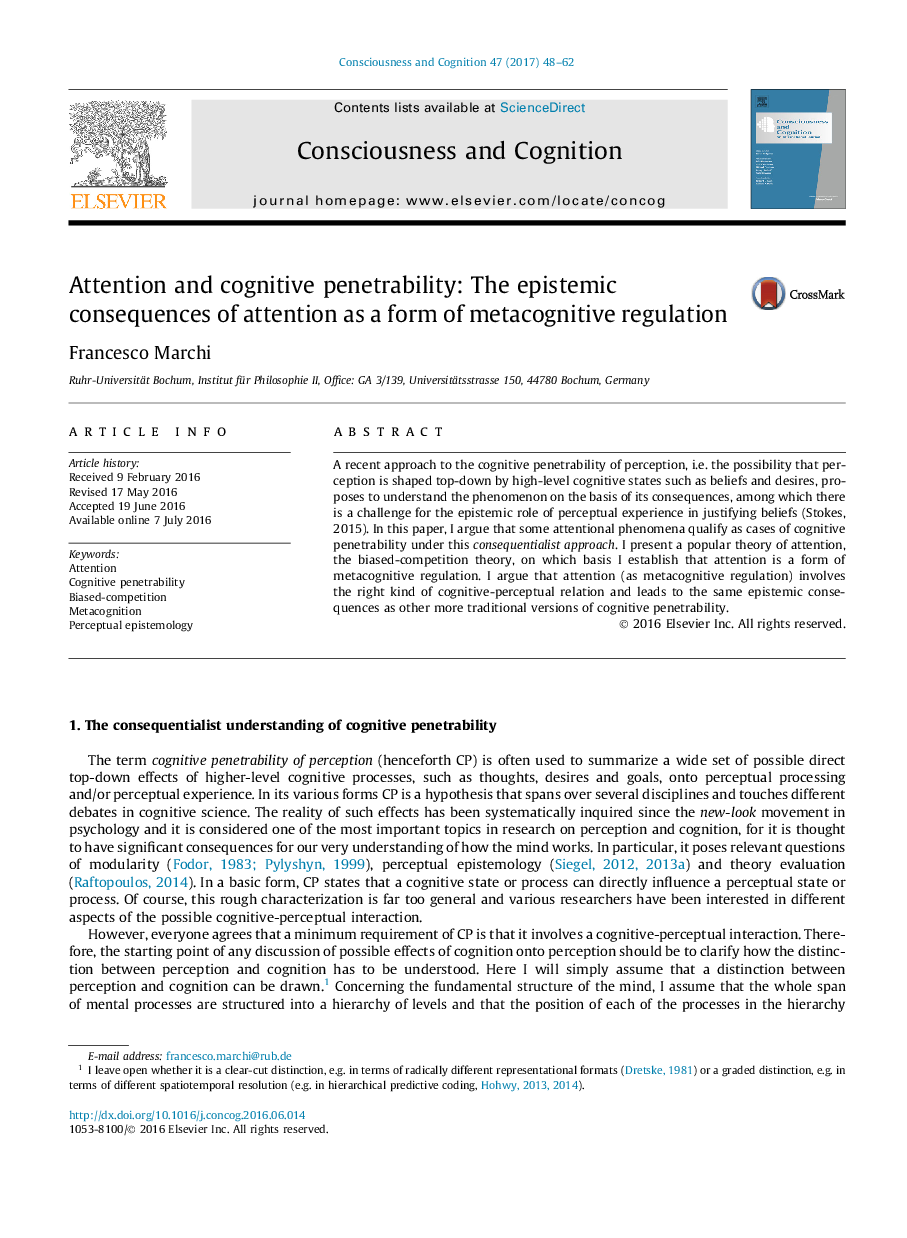| Article ID | Journal | Published Year | Pages | File Type |
|---|---|---|---|---|
| 5041823 | Consciousness and Cognition | 2017 | 15 Pages |
â¢Offers an exposition of the biased competition theory of attention.â¢Proposes a new approach to attention based on metacognition.â¢Discusses the epistemic consequences of the metacognitive view of attention in perception and cognition.â¢Argues that attention can be a form of cognitive penetrability.
A recent approach to the cognitive penetrability of perception, i.e. the possibility that perception is shaped top-down by high-level cognitive states such as beliefs and desires, proposes to understand the phenomenon on the basis of its consequences, among which there is a challenge for the epistemic role of perceptual experience in justifying beliefs (Stokes, 2015). In this paper, I argue that some attentional phenomena qualify as cases of cognitive penetrability under this consequentialist approach. I present a popular theory of attention, the biased-competition theory, on which basis I establish that attention is a form of metacognitive regulation. I argue that attention (as metacognitive regulation) involves the right kind of cognitive-perceptual relation and leads to the same epistemic consequences as other more traditional versions of cognitive penetrability.
